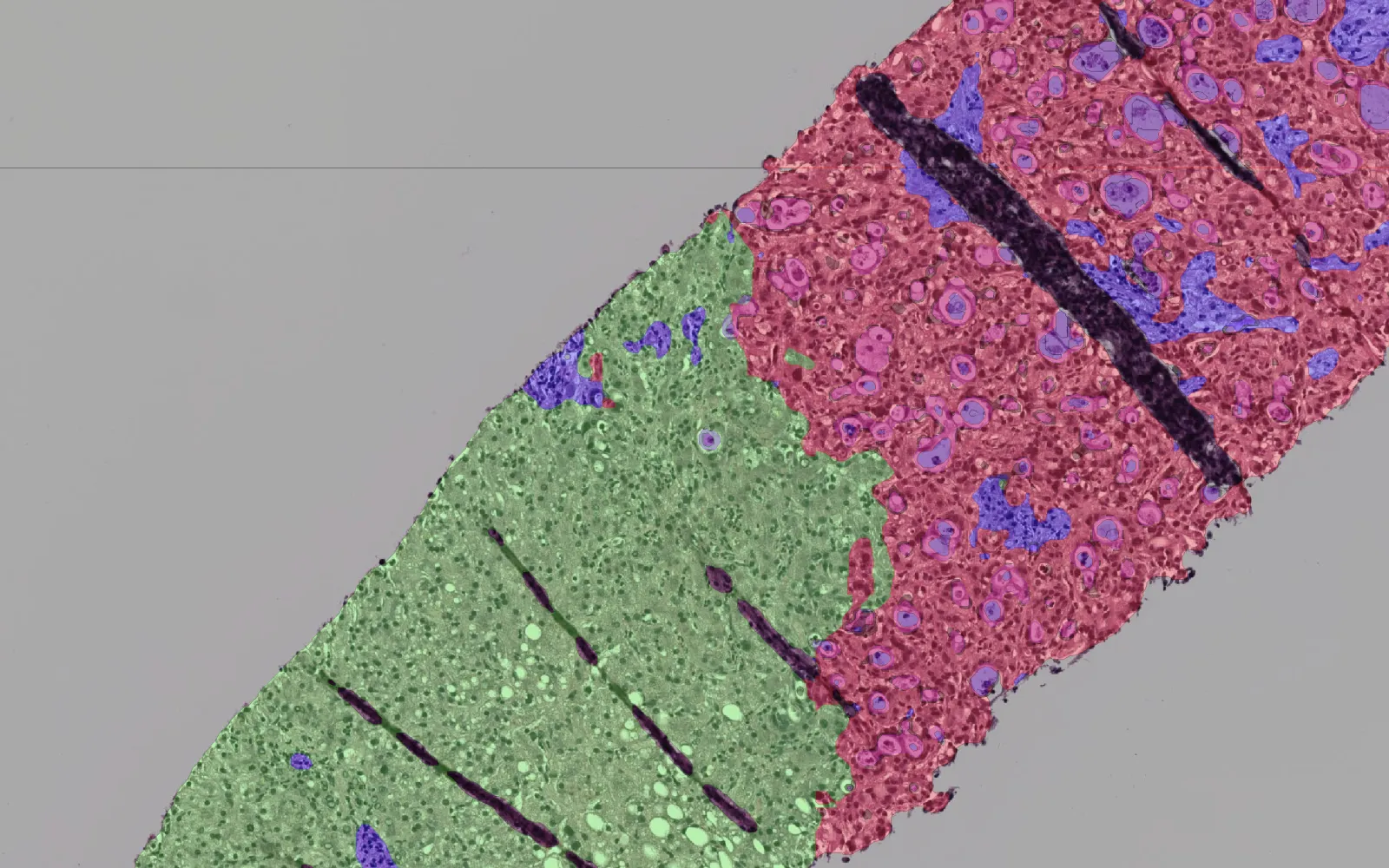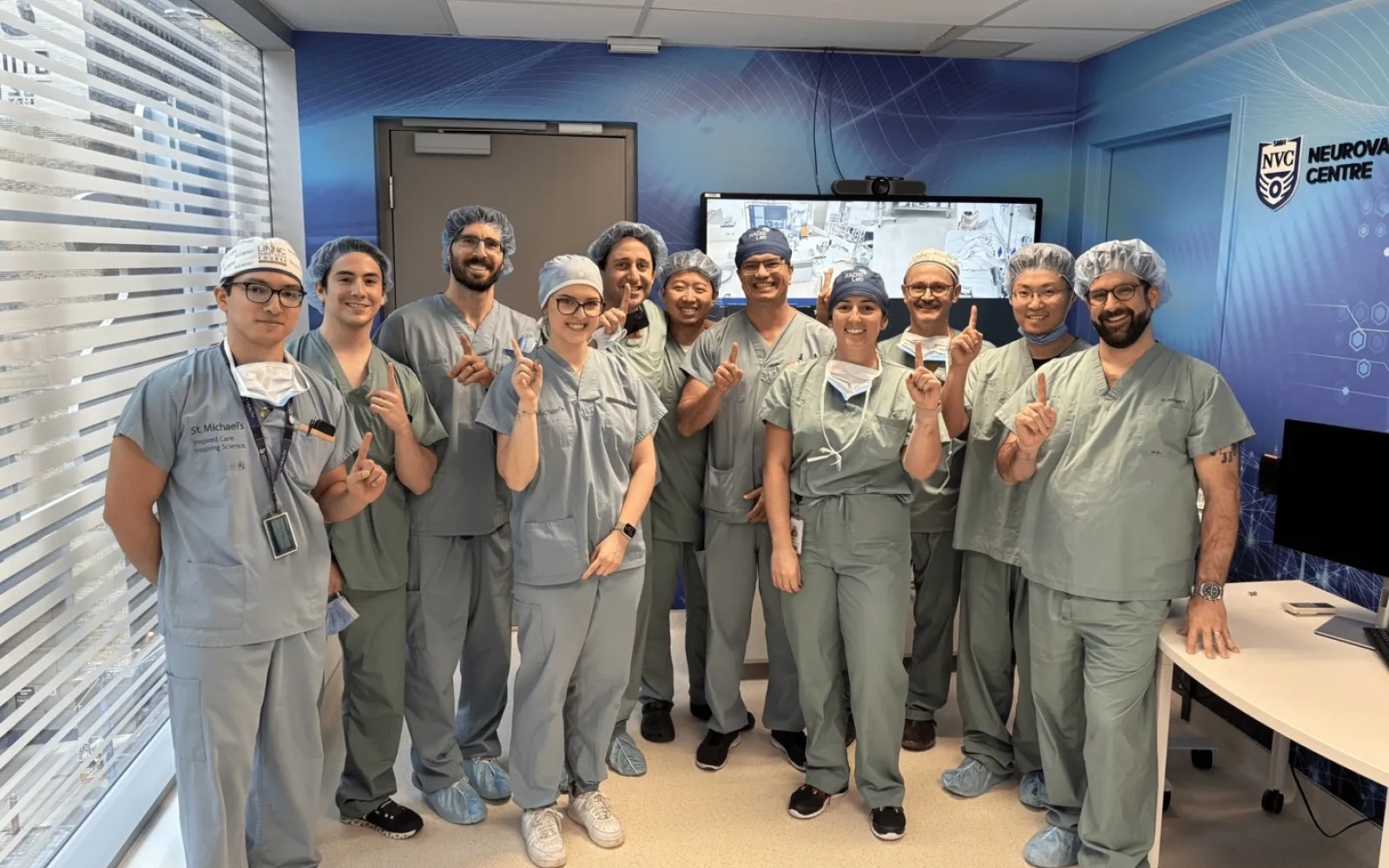

Caption Health
Helping non-specialists deliver echocardiograms in any setting
In biology, a speciation event refers to the process by which populations evolve to become distinct species. The field of medical technology, or MedTech, is currently undergoing such a process as AI, machine learning, and an array of new sensors including computer vision technologies combine to create an entirely new movement – TechMed – that promises to drive better patient outcomes globally.
Traditional MedTech is a $500-billion-a-year industry focused primarily on medical devices. It is a hardware-centric field providing an enormous profit sanctuary for legacy players, even when the devices are effectively high-quality commodities. Indeed, the motivation is focused on consumption of materials around the device. This is especially true in an array of orthopedic, spine, and cranial surgical areas, which represent over $100 billion of annual spend. In these procedures, items such as titanium screws and rods that are priced at thousands of dollars are inserted into the patient to correct a deformity or broken bone. Glibly, the orthopedic market resembles the shaving market: many large MedTech companies such as Medtronic and Stryker make more on the plates, rods, and screws (blades) than the devices to internally fixate them (razors).
Unlike MedTech, the emerging TechMed industry starts from a fundamentally different base, leveraging cutting-edge technological capabilities like data visualization, real-time sensors and sensor fusion, computer vision systems, GPU-accelerated computing power, and machine learning models trained on large, proprietary data sets. These deep-tech competencies are then adapted and applied to various medical and surgical use cases. Because TechMed is being built in the modern AI era, it can take full advantage of technologies like neural networks, convolutional deep learning, and other advanced methods to parse through and derive insights from the massive troves of medical data being generated.
Rather than developing new medical devices per se, TechMed companies are focused on creating intelligent software systems that can augment and optimize the human technique involved in the practice of medicine itself. Their AI “co-pilots” can guide physicians on how diagnostic exams or procedures should be properly performed, automatically read and interpret medical images like MRIs or CT scans, recommend optimal surgical plans, and even provide real-time surgical navigation and decision support.
In effect, TechMed companies cultivate a “data river” rather than a data moat, a continuous and dynamic flow of data that spans the entire patient lifecycle, from diagnostics to intra-procedures, and post-procedure phases. The depth, breadth, and constant updating of these datasets ensure they remain comprehensive and relevant, with each new data input enhancing the model’s capabilities. This contrasts with traditionally “siloed” institutional data stores that are fragmented, narrow in scope, and quickly become stale.
The economics and business-model implications of the TechMed movement more closely mirror the dynamics we see from dominant tech platforms and ecosystems. Whereas MedTech players are primarily product companies that monetize device sales, TechMed companies are fundamentally software- and platform-centric.
In this sense, an analogy can be drawn to Microsoft’s evolution from its Windows operating system as the base layer enabling an entire ecosystem of complementary applications, services, and hardware offerings. The first “operating systems” for TechMed – connected data platforms ingesting multi-modal inputs from the clinic and hospital environment – will similarly yield a diverse array of smart, AI-guided applications tailored for different medical specialties and use cases. This creates an opportunity for TechMed companies to develop into multibillion-dollar, all-encompassing platforms monetizing at a much greater scale than the product silos of the legacy medical industry.
For investors and entrepreneurs, TechMed represents a potential departure from the traditional “cookie cutter” MedTech business model of splitting up the human body into discrete component verticals like ortho, cardio, neuro, etc. Rather than having to hyper-specialize in inherently limited markets, TechMed enables building horizontal platforms that can scale across multiple therapeutic areas and use cases.
Proprio and Caption Health: Poster Children for TechMed
Two DCVC-backed companies exemplifying the TechMed thesis are Proprio and Caption Health. Proprio is a surgical navigation and intelligence company focused initially on spine procedures like posterior spinal fusions to correct curvature of the spine. It relies on an advanced array of sensor technologies including lightfield imaging, which captures visuals with far more depth and dimensionality than traditional cameras.
Proprio’s system gives surgeons real-time 3D guidance akin to “surgical GPS,” continuously mapping and adjusting the operative field to ensure optimal implant placement and spinal alignment. It leverages computer-vision AI models built from analyzing hundreds of prior procedures by world-class surgeons across 250+ gigabytes of multi-modal operating-room data per procedure. This proprietary data pipeline allows Proprio’s system to improve with every surgery, learning new techniques and adjusting for any intraoperative changes.
In 2023, Proprio secured its landmark FDA 510(k) clearance as the first such AI-guided surgical navigation system for spine surgery. With a robust pipeline of further FDA submissions across other spine procedure types and ultimate ambitions to expand into orthopedics, neurosurgery, and more, Proprio is positioned to become the default “co-pilot” platform augmenting surgeons across myriad therapeutic areas.
Caption Health, acquired by GE HealthCare in 2023, took a similar data-driven AI approach but for the imaging diagnostic realm. Its breakthrough product was an AI guide that enabled minimally trained operators to capture diagnostic-quality ultrasound image sequences on par with expert sonographers or cardiologists. By studying tens of thousands of prior exams, Caption’s AI learned to identify standard views and provide real-time instructions on properly manipulating the ultrasound wand.
For conditions like heart disease, which require assessing the heart’s ejection fraction (the percentage of blood pumped out of the heart with each contraction), Caption’s “virtual instructor” democratized the ability to administer these studies at the point of care, rather than having to rely on scarce, trained staff constantly shuttling between imaging rooms and offices. Caption subsequently expanded its product into other use cases like lung imaging and maternal health, creating AI-guided imaging protocols for a variety of acute and chronic conditions.
Real-World Impact
The human and economic impact of the TechMed movement is multifaceted and transformative. Unlike the slower innovation cycles of traditional MedTech companies, TechMed players like Proprio and Caption more resemble agile tech industry disruptors.
A key driver for TechMed’s rapid innovation is addressing significant labor shortages plaguing healthcare systems. In the U.S. alone, there is a shortage of tens thousands of surgeons and a million nurses – gaps that can’t be bridged simply by training more professionals. TechMed innovations that make procedures faster and more efficient can mitigate this workforce crunch. Proprio’s technology, for instance, reduces operating times by 20 to 30 minutes by optimizing implant placement and workflow. This minimizes patient risk from excessive time under anesthesia while boosting operating room throughput and utilization for healthcare facilities.
Moreover, unlike MedTech and BioTech businesses dependent on a blockbuster device (pacemaker) or drug (Ozempic), TechMed companies can sustainably grow by continuously delivering new AI-guided software applications atop their core platform. This echoes how companies like Cisco successfully monetized and expanded the core Internet protocol suite across myriad complementary networking services and applications. The ability to nimbly integrate new capabilities creates stickier, more comprehensive solutions than MedTech’s traditionally siloed offerings.
TechMed is poised to create more abundance and better outcomes in healthcare. The shift among health insurers toward value-based reimbursement models tied to quality metrics gives these solutions a powerful tailwind. By enhancing precision and consistency, TechMed lowers the variability that today can make outcomes dependent on factors like provider expertise or patient socioeconomics. As more aspects of care delivery become data-driven and AI-guided, all patients can access a consistently high standard of evidence-based medical practice.
Digitizing human anatomy into quantifiable data models also helps break down the fragmented hyper-specialization that can compromise holistic, patient-centered care. Rather than treatment paths being dictated by specialty silos and fragmented data, TechMed enables more integrated care journeys fueled by comprehensive “data rivers” that span the entire continuum. Robust data and AI inscription of medical knowledge boosts accessibility and outcomes, which are ultimately the crucial determinants of patient satisfaction.
Data is becoming the atomic element of healthcare.
Looking ahead, the TechMed movement is poised to continue revolutionizing healthcare. The future will likely see the development of even more sophisticated AI-driven feedback loops, enhancing patient care and response over time. The accumulation of large, proprietary datasets will facilitate this, enabling a deeper understanding of surgical techniques and outcomes. Ultimately, TechMed stands at the forefront of a healthcare transformation, promising better patient care, more efficient medical practices, and a more economically sustainable healthcare system.
Alan Cohen is a General Partner at DCVC. Zachary Bogue is Co-Founder and Managing Partner of DCVC.



